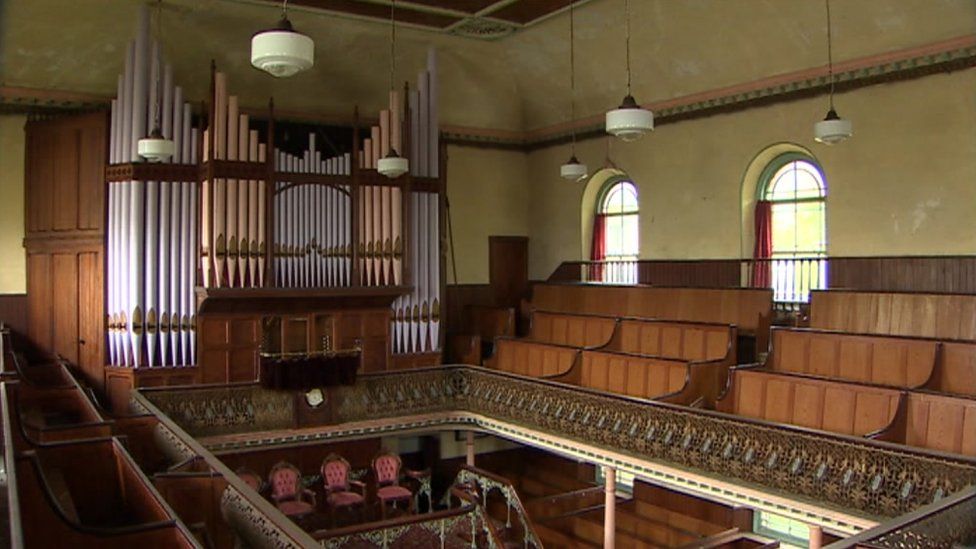Have you ever stood on a balcony, leaned over the edge and unexpectedly thought, “If I wanted to, I could just jump?” Or perhaps you’ve been at a cliff’s edge, with the intention of doing nothing more than enjoying the view and fleetingly considered how easy it would be to simply step over the edge. This sudden, often unanticipated thought is usually nothing to be worried about, but it certainly warrants exploration.
This feeling — which tends to be brief, entirely out of character and often involves thoughts of leaping from a high place or driving headfirst into an oncoming vehicle — is more widespread than you might think. In fact, it’s so common, the French have a term for it: l’appel du vide. In English, this translates to “the call of the void.”
But even though many individuals — over half of people, two small studies suggest — have reportedly experienced the call of the void, it hasn’t been studied widely. So, what do scientists know about the call of the void, which is also known as “the high place phenomenon”? And what has research revealed about it?
The first significant study on the phenomenon, published in 2012 in the Journal of Affective Disorders, surveyed 431 undergraduate students, and found that just over half of those who had never had suicidal thoughts had experienced aspects of the phenomenon at least once, whereas over 75% of lifetime suicide ideators, or people who have suicidal thoughts or ideas, reported experiencing the urge to jump from the window of a tall building or from a bridge. (The National Suicide Prevention Lifeline is 800-273-8255.)
The study showcased, for the first time, that there was not an exclusive link between suicidal ideation and experiencing sudden, unanticipated thoughts related to placing oneself in imminent danger. In effect, the study determined that there was a clear difference between an individual imagining the possibility of leaping from a high place and wanting to act on it.
Prior to undertaking the study, the researchers hypothesized that the call of the void could be a ‘misinterpreted safety signal,’ with those experiencing it potentially misreading the brain encouraging them to move away from danger — and the results seem to support this theory.
Moreover, individuals with higher self-reported anxiety levels were more likely to have felt the call than those with lower self-reported levels of anxiety. As a result, the study’s lead researcher, Jennifer Hames, who did the research as a clinical psychologist at Florida State University and is now an assistant clinical professor of psychology at the University of Notre Dame, concluded that, somewhat paradoxically, the call of the void could well be a person’s subconscious attempting to encourage a greater appreciation of what it feels like to be alive, as opposed to wanting to lure someone to their demise. Indeed, the study seems to indicate that the call of the void could indicate that someone has a higher than average degree of sensitivity when it comes to experiencing and interpreting internal cues.
A more recent study, published in 2020 in the journal BMC Psychiatry, also investigated whether the call of the void was more prevalent in people with suicidal ideation than those with no suicidal ideation, as some people who reported feeling the call of the void were concerned it could signal something more troubling about their mental state.
“In our outpatient clinic, people repeatedly presented themselves with the question of whether they were suicidal,” study lead researcher Tobias Teismann, a faculty member in the Department of Clinical Psychology and Psychotherapy at Ruhr-University Bochum in Germany, told Live Science in an email. “On the one hand, they were very attached to life, but on the other, they often felt the impulse to jump down somewhere or steer their car into oncoming traffic. I know the phenomenon myself, having felt it in my early 20s, so I knew studying it would be fascinating and clinically relevant.”
Teismann recruited 276 adults who filled in an online questionnaire, as well as 94 participants who were experiencing a “clinically-relevant fear of flying,” meaning they had sought medical or psychological assistance in an attempt to overcome their phobia. Teismann looked at both groups to investigate “the prevalence of the phenomenon across both samples,” he said.
The study found that those who had experienced suicidal thoughts were also likely to have felt the call of the void than those without suicidal ideation, but Teismann doesn’t believe this reveals a link between experiencing the call and wanting to harm oneself. “The phenomenon is more often reported by people who react to body signals rather anxiously,” he explained. In other words, people who experience shaking, light dizziness and/or muscle twitches are more likely to recall experiencing the phenomenon.
“It seems to be something known to many people regardless of suicidality and anxiety,” Teismann said. “As such, it is normal, and not a sign of psychopathology.”
Put another way, people shouldn’t necessarily “interpret such experiences as an expression of a hidden death wish,” the researchers wrote in the 2020 study.













